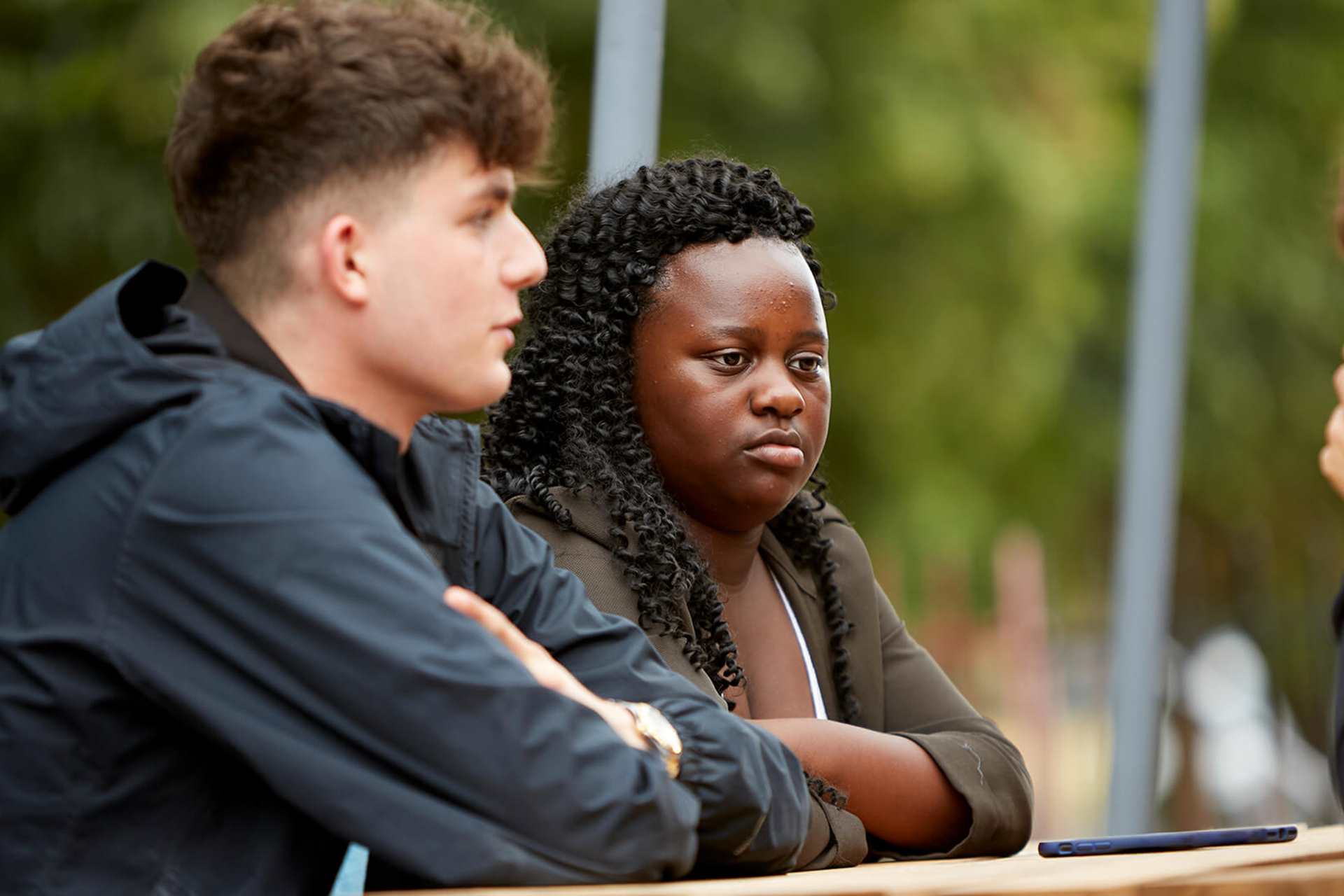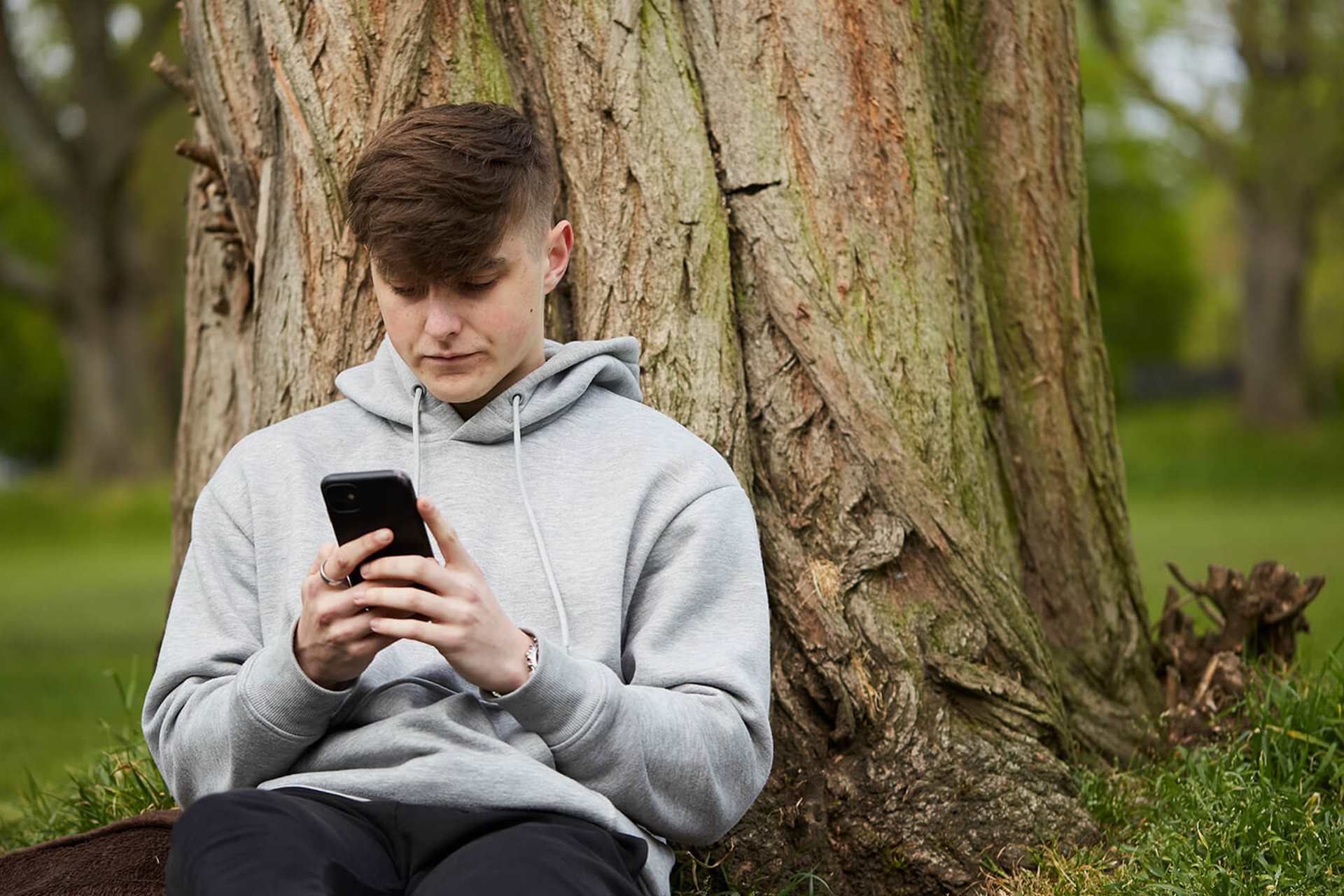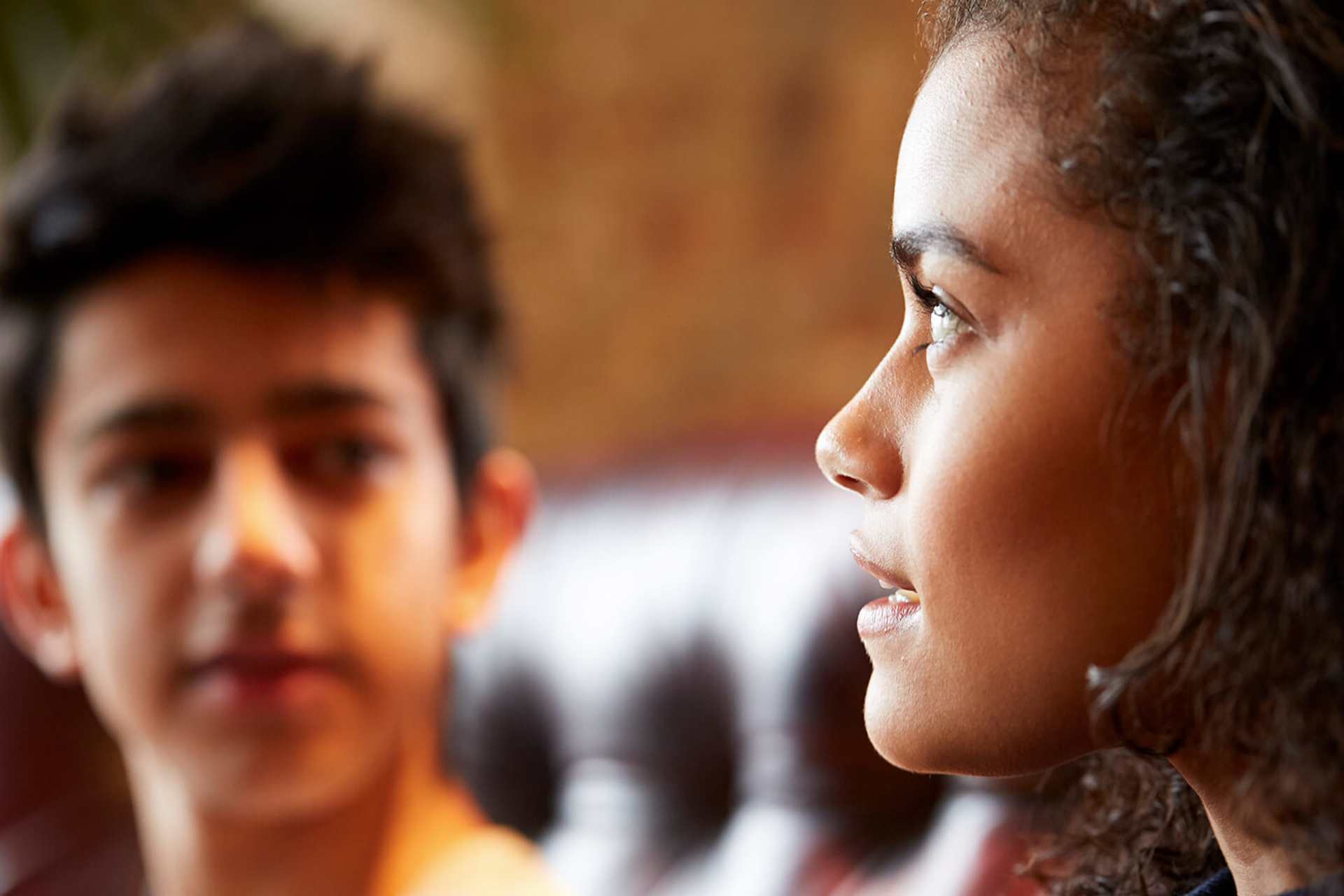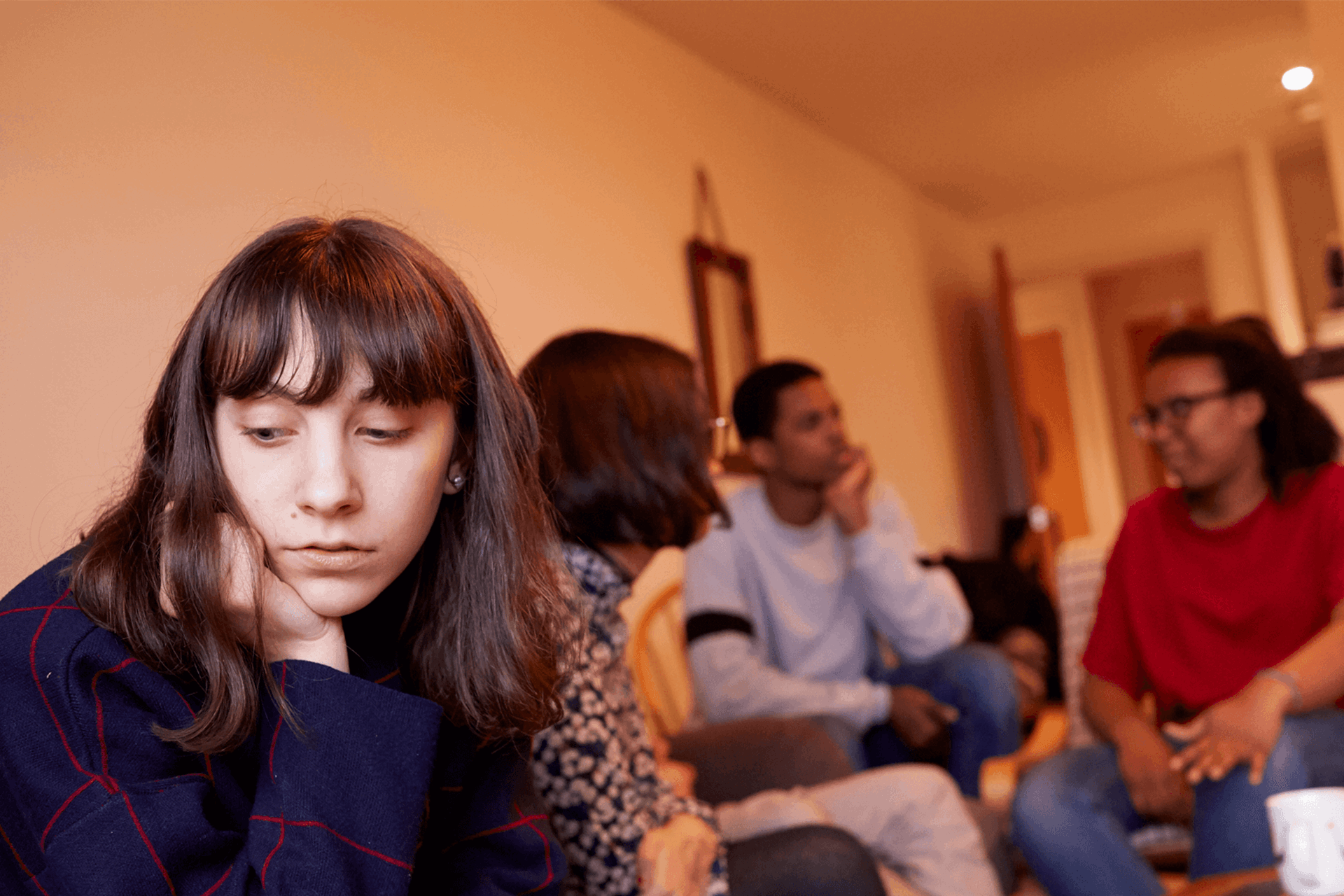Topics mentioned: eating problems, anorexia, anxiety
Authors: Caitlin, 16, Amy, 18 and Aimee, 22
About: Our bloggers share their tips for coping with an eating disorder during the festive period.
2020 will be my second Christmas since I began recovery for anorexia nervosa in December last year. While I, along with many of my friends and family, am excited for Christmas, I also find myself growing increasingly anxious as the day nears. I know that many others struggling with an eating disorder may be feeling the same, but I want to reassure you that this is perfectly normal leading up to an event so often focused on food and drink.
- Caitlin, 16
Coping with an eating disorder can be so hard but it can be made even more difficult during the festive period. With a large focus around food, it can be hard work to try and level your thoughts around this topic. You may feel overwhelmed, angry, upset, or anxious and all of these feelings are more than valid! You are the most important person in your recovery, and you should never feel like you have to hide your emotions. Please speak to someone if you feel like you need some support.
- Amy, 18
There is a social aspect of eating that affects those with an eating disorder. I haven’t been able to eat with other people at the dinner table since last Christmas, because eating in front of people, without distraction, is incredibly stressful. Normally, I find that watching the television while eating distracts me from the task, but this isn’t possible on Christmas, is it? There is a social obligation. Sitting around the table with loved ones is part of it. Eating food is part of it. When you have an eating disorder, this causes a lot of anxiety, but we may feel like we can’t let these feelings show because it’s Christmas!
Well to this unhelpful expectation I say: we will not let you win!
- Aimee, 22
You are the most important person in your recovery, and you should never feel like you have to hide your emotions.
Our tips for coping
- Acknowledge that while you may not be in the perfect situation yet, you are still working towards recovery. Nothing and nobody can change the progress you’ve made, so try not to let Christmas do it for you and put you back to square one. (Aimee, 22)
- Adjust expectations. 2020 has been a strange year and Christmas will be different for us all, but especially for those newly struggling with an eating disorder. We cannot hold on to the ideals of a perfect Christmas, or of it being like previous years. I encourage limiting time on social media and instead focusing on the moment. You do not need to have the ‘perfect’ Christmas, especially if you’re trying to live up to what someone else is posting. It's okay if you are struggling; you are not alone in that. So, make the most of this season and enjoy yourself without any judgement. (Caitlin, 16)
- Don’t change coping techniques that normally help, and don’t let anyone else force you to change them just for Christmas. We all have our own ways of coping, and that’s okay. Christmas can be challenging, so it’s especially important to use our coping strategies. Ultimately Christmas is no different than any other day, so why should we change tried and tested coping mechanisms now? (Aimee)
- Practise self-care and/or mindfulness. It might feel difficult to stay calm right now but doing something kind for yourself each day can be helpful to ease the thoughts. You could try putting on a face mask, playing a game with family/friends, meditating, taking a nap or washing your face. (Amy, 18)
You do not need to have the ‘perfect’ Christmas, especially if you’re trying to live up to what someone else is posting. It's okay if you are struggling; you are not alone in that.
- Communicate. The thing that helped me most last year was planning my Christmas day meal beforehand. Speak to someone you trust and know will support you such as a parent or carer and agree on things before, such as them plating up food for you or what you will do in terms of snacks. It can also help to sit next to them during the meal so they can comfort and encourage you. Furthermore, if you feel comfortable to do so, speak to others that you will spend Christmas day with about conversation you may find triggering or upsetting. If you are anxious about them commenting on your appearance, your portions, or food in general, it may be a good idea for you or someone else to make them aware of this. (Caitlin)
- Use distraction. If you are struggling to cope with your feelings, try doing something to distract yourself. I like using sensory toys. If you find a particular texture, scent or visual that you like then it may be helpful to use these when you are feeling distressed or down. I also find that doing activities that involve my hands are very helpful as I tend to be very focused on what I am doing (e.g. knitting, sewing, colouring, playing an instrument) (Amy)
- Focus on the things you like about Christmas. Distraction is one of the best tools when struggling with your eating disorder thoughts around Christmas. Have activities ready that will help divert your attention, such as a reading, listening to music, drawing or whatever else you enjoy - especially straight after eating. Additionally, if big meals are causing you stress, try to plan activities not based around food. For example, decorating the house, singing carols or playing board games with family. I also believe that it’s best to try to not ruminate on the day beforehand, as it can build up even more fear and anxiety. (Caitlin)
If you are struggling to cope with your feelings, try doing something to distract yourself. I like using sensory toys.
- Remember that it’s okay to be unhappy or anxious on Christmas. Don’t let the obligation to be happy derail your progress. Also remember, you are a brave and amazing person for dealing with your eating disorder every day, including Christmas. (Aimee)
- Be kind to yourself. Things may be difficult, and it's okay to struggle, but you are not alone. It's okay to take time out if you need it or to ask someone for support if available. YoungMinds and other charities such as Beat have so many helpful resources that you can use, many of which I’ve found beneficial in the past. (Caitlin)
- If you feel like you might need some extra support, it is really important that you tell somebody you trust such as a parent or teacher. They may suggest going to see a GP. It can be such a scary thing to do but asking for help is one of the most important aids when recovering from an eating disorder. (Amy)
Remember, you are a brave and amazing person for dealing with your eating disorder every day, including Christmas.
More information and advice
We have tips and advice to help you find the support you need. Take a look at our guides.
Where to get help
However you're feeling, there are people who can help you if you are struggling. Here are some services that can support you.
-
Beat
Offers information and support for anybody affected by eating disorders.
One-to-one web chat available. They also run a range of online support groups, which are all fully moderated and anonymous.
Enter your postcode in the HelpFinder to see what eating disorder support is available in your area.
View their information on helpline accessibility and confidentiality.
- Opening times:
- 365 days a year - weekdays (9am - 8pm); weekends (4pm - 8pm)
-
Shout
Text SHOUT to 85258.
Shout provides free, 24/7 text support for young people across the UK experiencing a mental health crisis.
All texts are answered by trained volunteers, with support from experienced clinical supervisors.
Texts are free from EE, O2, Vodafone, 3, Virgin Mobile, BT Mobile, GiffGaff, Tesco Mobile and Telecom Plus.
Texts can be anonymous, but if the volunteer believes you are at immediate risk of harm, they may share your details with people who can provide support.
- Opening times:
- 24/7






